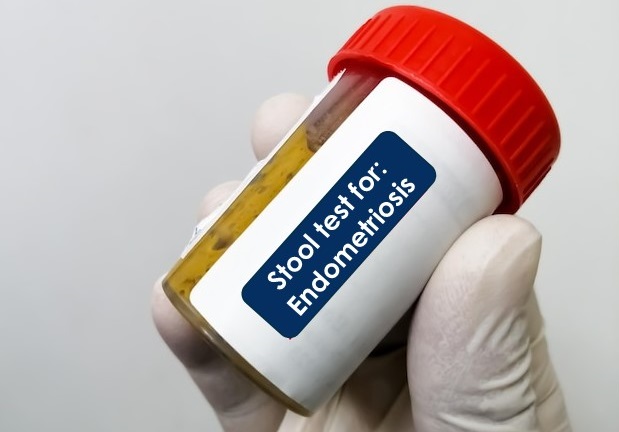New Stool Test May Detect Endometriosis Early, Researchers Say
By Adebowale Bello. B.Tech Microbiology. Freelance Health Writer. Medically reviewed by the DLHA Team

Is a stool test for endometriosis real?
Endometriosis is a health condition that affects about 200 million women worldwide. It occurs when the tissue lining the inside of the uterus, called the endometrium grows outside of the uterus. This tissue can attach to other organs in the pelvic region, such as the intestines or the abdominal lining, leading to painful symptoms such as severe menstrual pain, chronic pelvic discomfort, inflammation and in many cases, infertility.
However, because these symptoms are often mistaken for other conditions, such as irritable bowel syndrome (IBS), diagnosis can take a long time. A new breakthrough from researchers at Baylor College of Medicine could change this, offering hope for better diagnosis and treatment through a non-invasive stool test and a novel therapy.
According to Dr. Rama Kommagani, associate professor at Baylor College of Medicine, the current methods of diagnosing endometriosis are not only invasive but also ineffective in offering early detection. "It takes approximately seven years to detect endometriosis, which is often misdiagnosed as a bowel condition," she said.
One promising area of research involves the microbiome—the community of bacteria and other microorganisms that live in our bodies. Previous studies in mice suggested that these bacteria and their byproducts, known as metabolites, might play a role in the development of endometriosis.
The research team compared the stool samples of women with endometriosis to those of healthy women and found significant differences in the types of bacteria and metabolites present. One of the key findings was the reduced presence of a metabolite called 4-hydroxyindole in women with endometriosis. This compound, produced by beneficial bacteria, appeared in much smaller quantities in those with the condition.
The discovery of these metabolite differences has opened the door to the possibility of a non-invasive stool test for diagnosing endometriosis. Rather than undergoing invasive surgery, women might one day be able to provide a simple stool sample to detect the disease early, potentially reducing diagnosis time and improving their quality of life.
The researchers also explored whether administering 4-hydroxyindole could treat endometriosis. In animal studies, the metabolite was found to reduce the inflammation and pain associated with the condition.
In Africa, where access to advanced medical facilities is often limited and many health conditions go undetected or misdiagnosed for extended periods, this would be a welcome development and it is a significant step toward developing a new therapy that could ease the suffering of millions of women.
This study is the first of its kind to discover a unique metabolite profile linked to human endometriosis and paves the way for better understanding of the medical condition. Interestingly, the researchers also discovered similarities between the metabolite profiles of endometriosis and inflammatory bowel disease (IBD), suggesting that there could be a deeper link between these two conditions, both of which involve chronic inflammation.
Although the research is still in its early stages, the implications are exciting. A non-invasive stool test and a treatment based on the body’s own bacterial metabolites could revolutionize how endometriosis is managed and improve the lives of countless women.
Moreover, if 4-hydroxyindole proves to be a safe and effective treatment, it could offer a much-needed alternative to current therapies, which often involve hormone treatments or surgery. With continued research, we may be on the verge of significant advancements in how endometriosis is diagnosed and treated, giving women a chance at a better, pain-free life.
Source: Baylor College of Medicine Newsroom
Related: Endometriosis: What you need to know
Published: October 24, 2024
© 2024. Datelinehealth Africa Inc. All rights reserved.
Permission is given to copy, use and share content for non-commercial purposes without alteration or modification and subject to source attribution.
DATELINEHEALTH AFRICA INC., is a digital publisher for informational and educational purposes and does not offer personal medical care and advice. If you have a medical problem needing routine or emergency attention, call your doctor or local emergency services immediately, or visit the nearest emergency room or the nearest hospital. You should consult your professional healthcare provider before starting any nutrition, diet, exercise, fitness, medical or wellness program mentioned or referenced in the DatelinehealthAfrica website. Click here for more disclaimer notice.